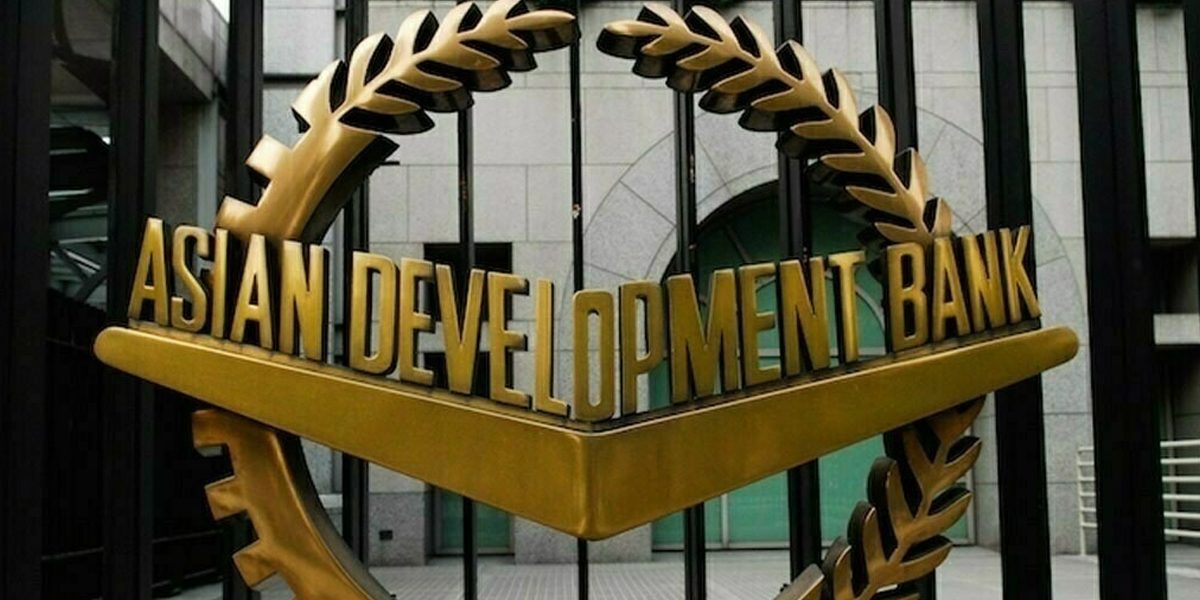Federal Minister for Economic Affairs Omar Ayub Khan witnessed the signing ceremony for the programme.
The objective of the programme is to strengthen market stability, enhance market facilitation and supply-based measures, and improve demand-based measures for capital market development.
The Minister for Economic Affairs acknowledged the ADB’s continued assistance to the government of Pakistan, further highlighting that Pakistan has recently completed various reforms under ADB’s technical and financial assistance including Trade & Competitiveness Programme ($ 800), Energy Sector Reforms & Financial Sustainability Programme ($ 600) and Capital Market Development Programme ($ 600).
The Minister expressed that the government is also committed to introduce reforms in other areas such as Domestic Resource Mobilisation, Climate Change and Public-Private Partnerships.
Khan further stressed on using digital tools for effective project management and monitoring. At present, 37 ADB-funded development projects amounting to $ 7.9 billion are under implementation across the country in energy, road & transport, agriculture, urban infrastructure and social sector.
During the current fiscal year, the ADB has disbursed over $ 1.1 billion for various development projects and programmes.
ADB Country Director Yong Ye acknowledged the government’s efforts for completing reforms in the capital market.
He also discussed the ADB’s ongoing portfolio and future interventions, while highlighting the various issues pertaining to the Energy Sector including MFF Power Transmission Enhancement Investment Programme II (Tranche 3) and Greater Thal Canal Irrigation Project.
He also shared that the ADB will provide support to EAD for development of e-portal for effective project management.
Under the programme, Pakistan has successfully completed 19 prior policy actions including strengthening market stability, designed to promote more robust, resilient, and stable capital markets.
Under subprogramme 1, amendments were initiated to the Securities and Exchange Commission of Pakistan (SECP) Act, 1997 to ensure structural changes in the appointment process of commissioners, and enhance operational efficiency by having commissioners operate as a collegiate body, while the National Finance Stability Council was established to deal with issues in cross regulatory domains.
A new broker model was introduced to strengthen the brokerage industry by reducing the likelihood of broker defaults. The new model categorises brokers according to their net worth and governance requirements, which will ascertain appropriate operational risks to be assumed by the brokers.
These reforms continued with follow-up policy actions under subprogramme 2, such as approval of the SECP Act amendments by the National Assembly, exemption from income tax for the SECP, and notification of a customer custody regime for the brokerage industry.
The second reform was to enhance market facilitation which will support more efficient resource mobilisation and allocation in the economy by expediting the adjudication of enforcement actions, strengthening auditing standards, and enhancing market surveillance systems.
Financial infrastructure including well-developed trading platforms and surveillance systems that facilitate efficient information exchange and disclosure, as well as stronger legal framework and resolution mechanisms are necessary to complement the institutional environment for development of capital markets.
The reforms also included enhancing supply measures which focused on increasing the depth and breadth of the capital markets by promoting alternative financial instruments including derivatives and commodity futures, as well as providing an enabling framework to allow for increased access to financing by growth companies and state owned enterprises.
Supply measures under subprogramme 2 include facilitate and expand the issuance of sovereign sukuks; facilitate listing of SOEs on the Pakistan Stock Exchange (PSX) to broaden and deepen the capital markets; promote the introduction of alternative asset classes, such as exchange-traded funds, options, futures, and sharia-compliant (compliant with Islamic principles) products.
The measures also include issuing a framework for women entrepreneur bonds whose proceeds will help finance SMEs owned or led by women. The increased listing of SOEs will also help the government address other binding constraints in SOE management such as poor corporate governance and commercial performance.
The country also brought reforms to enhance demand measures aimed at enhancing the scale of capital markets by not only encouraging investments by institutional and retail investors, but also by strengthening the government debt market.
The local currency government bond markets can be a catalyst for the development of corporate bond markets by providing a yield curve benchmark against which to price bonds, market liquidity, and price revelation.





















